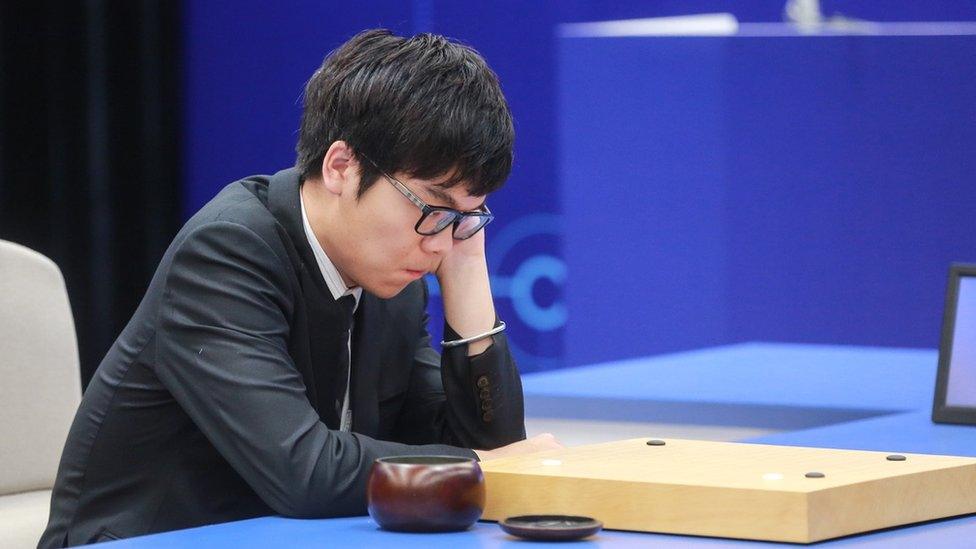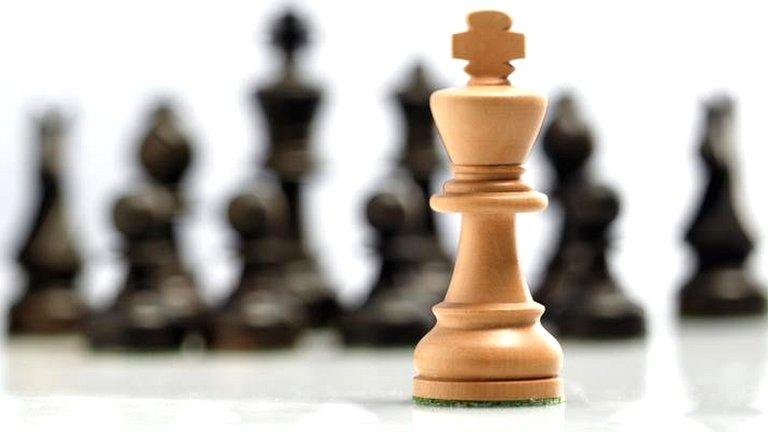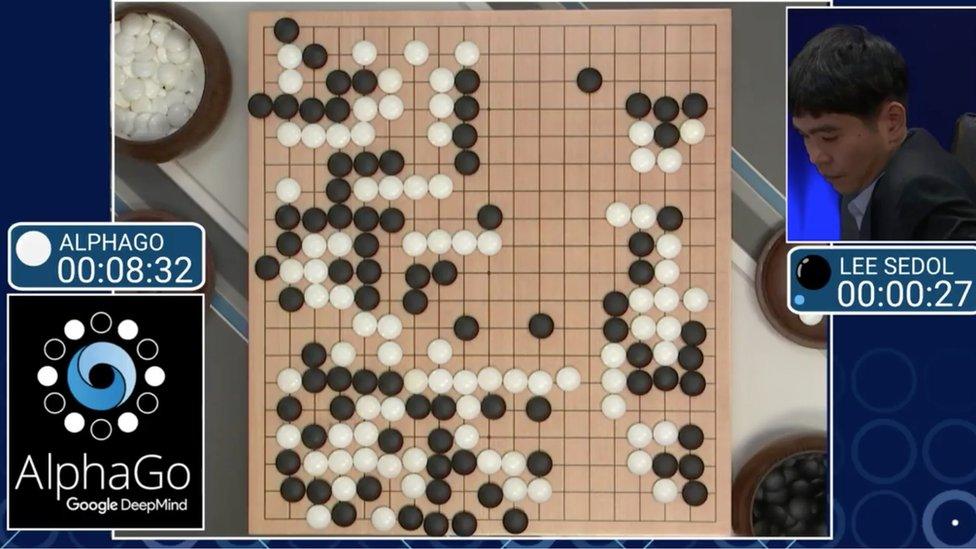Go player to take on Chinese AI in match
- Published

Ke Jie took on AlphaGo in May 2017 and lost
The world's top Go player will take on an artificial intelligence opponent again this spring, but this time it will not be Google's DeepMind that provides the machine rival.
Ke Jie had previously vowed never to play against AI again after repeatedly losing to DeepMind's AlphaGo.
But according to Chinese media reports, he will take on a range AI opponents, including one from China's Tencent.
The man-versus-machine series will take place in China in April 2018.
Other firms providing AI programs include Japan's DeepZenGo and Taiwan's CGI. The matches will form part of the the World AI Go Tournament.
Nineteen-year-old Jie took on AlphaGo in the spring of 2017, losing all three matches. Afterwards, DeepMind announced that its algorithm would officially retire from competitive Go playing.
A South Korean Go champion, Lee Sedol, had already played DeepMind in March 2016. He lost 4-1, in a series of matches described by experts as a landmark achievement for AI.
The Chinese board game is considered to be a much more complex challenge for computers than chess.
Chinese AI technology is developing at great speed - Baidu has more than 60 different AI platforms and has spent about $1bn (£746m) buying Western AI firms, while Alibaba and Tecent are also investing heavily in the technology.
Eric Schmidt, chairman of Google's parent firm Alphabet, has said he thinks China could overtake the US in terms of AI within five years.

What is Go?
A brief guide to Go
Go is thought to date back to ancient China, several thousand years ago.
Using black and white stones on a grid, players gain the upper hand by surrounding their opponents' pieces with their own.
The rules are simpler than those of chess, but a player typically has a choice of 200 moves at most points in the game, compared with about 20 in chess.
It can be very difficult to determine who is winning, and many of the top human players rely on instinct.
- Published6 December 2017

- Published18 October 2017
- Published12 March 2016
